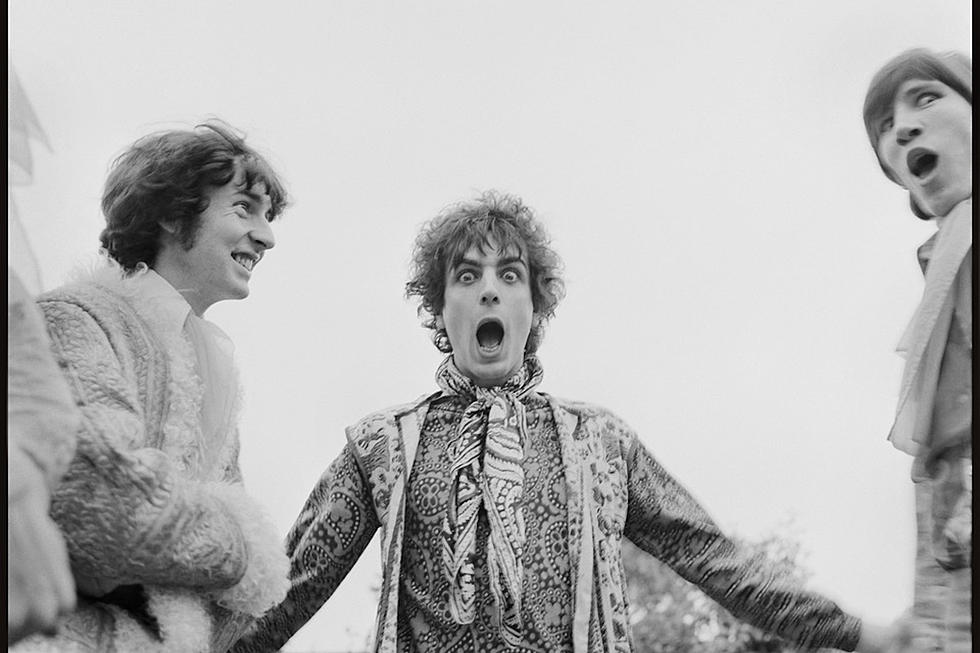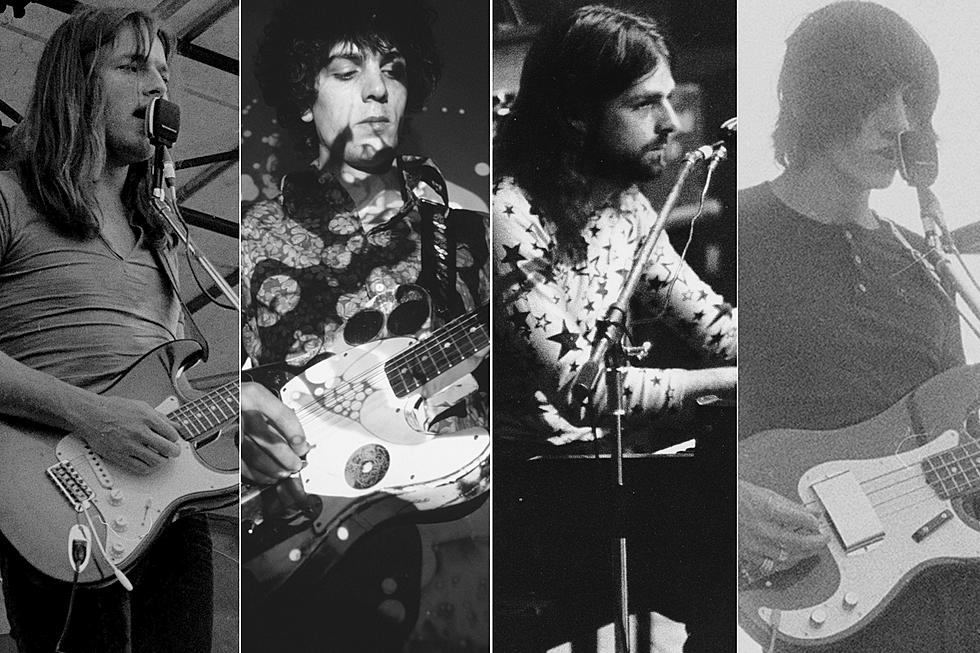
Why Syd Barrett’s Solo Career Ended With ‘Barrett’
Syd Barrett's second solo album, simply titled Barrett, would be his last – and that became clear even as the badly faltering former Pink Floyd frontman attempted to finish it.
Barrett's old bandmates tried to pitch in, just as they had on his debut. David Gilmour served as producer on the disjointed sessions, adding guitar, bass, drums and organ as needed. Richard Wright contributed some keyboards. But Barrett's increasingly erratic behavior as he battled progressive mental illness, coupled with an overstuffed schedule for Gilmour and Wright as Pink Floyd's ascension began into the '70s, made for an excruciating experience.
"We really had basically three alternatives at that point, working with Syd," Gilmour told the New Musical Express in 1974. "One, we could actually work with him in the studio, playing along as he put down his tracks – which was almost impossible, though we succeeded on 'Gigolo Aunt.' The second was laying down some kind of track before and then having him play over it. The third was him putting his basic ideas down with just guitar and vocals and then we'd try and make something out of it."
Some 15 sessions were held between February and July before Barrett arrived on Nov. 14, 1970, many of them jammed between Gilmour and Wright's commitments with Pink Floyd as they worked on Atom Heart Mother. Humble Pie's Jerry Shirley, who had appeared on Barrett's earlier album The Madcap Laughs, again sat in on drums.
Gilmour made the best of it, fastening a Barrett warm-up session on the beginning of the Byrds-y "Baby Lemonade" in order to complete the song. "Maisie," meanwhile, is nothing more than an extended jam, with Barrett's wandering lyrics on top. Certainly, "Gigolo Aunt" and "Effervescing Elephant" recreated some of the early Pink Floyd magic, while providing a template for subsequent successes by the likes of David Bowie, Robyn Hitchcock and Blur.
But getting those scraps of brilliance had become too much for his former bandmates, who had their own careers to manage. "Doing Syd's record was interesting, but extremely difficult," Wright told Mark Blake in 1996. Dave and Roger [Waters] did the first one, and Dave and myself did the second one. But by then it was just trying to help Syd any way we could, rather than worrying about getting the best guitar sound. You could forget about that! It was just going into the studio and trying to get him to sing."
Syd Barrett's lone official solo appearance – held during the sessions for Barrett – gave new insight into the health issues quickly surrounding him. Barrett got through just four songs before walking off stage with his guitar on June 6, 1970, at the Olympia in Kensington, leaving sidemen Gilmour and Shirley to wonder if he would return. He did not.
Barrett failed to chart, marking the end of his recorded output. Syd returned to the studio in 1974, this time without any members of Pink Floyd. Work commenced on nearly a dozen new songs but nothing ever came of them.
Pink Floyd Solo Albums Ranked
You Think You Know Pink Floyd?
More From Ultimate Classic Rock









